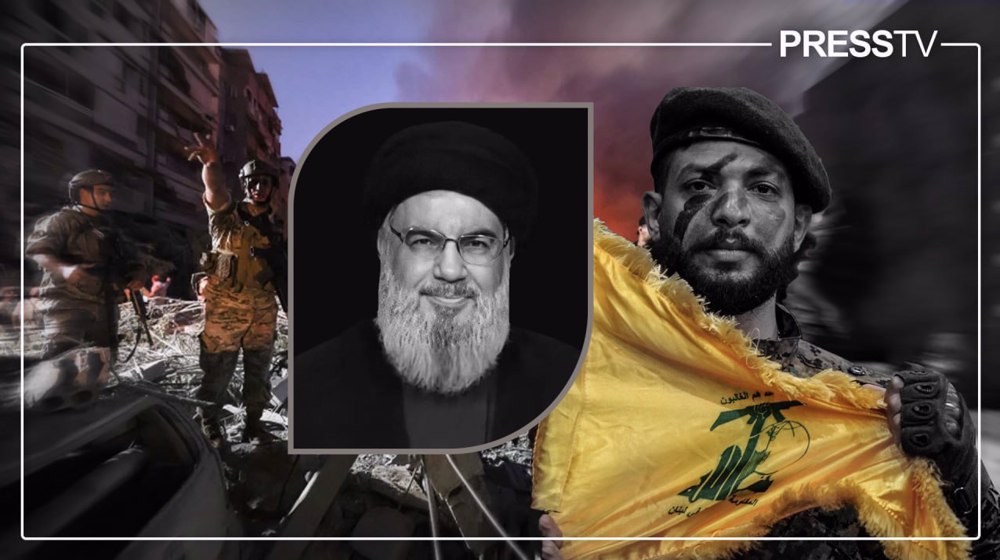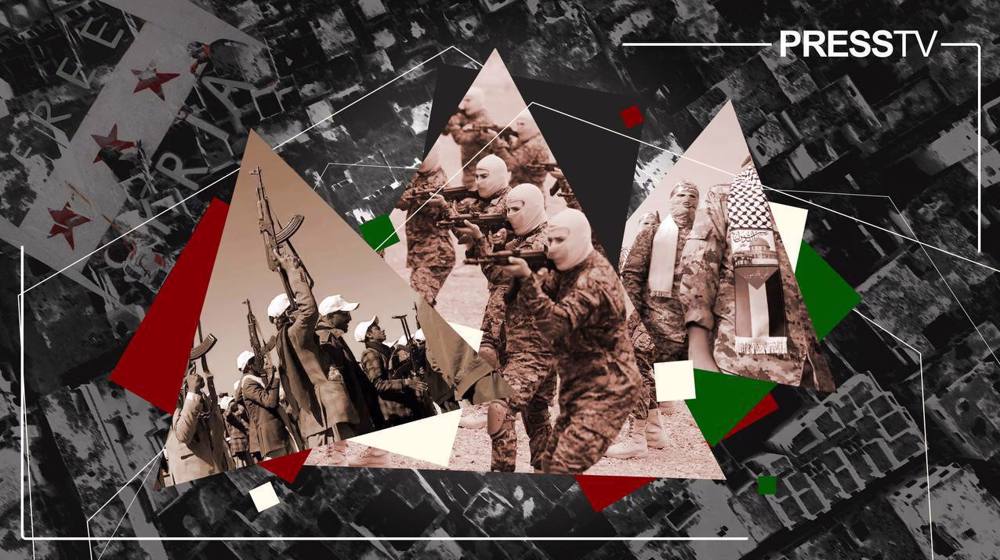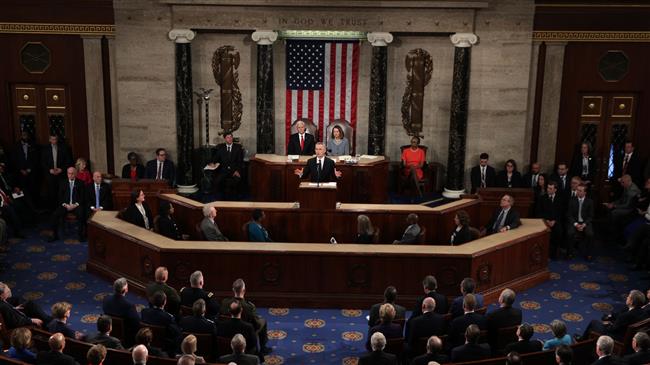Tragedy of silence: Enablers of Saudi bloodshed in Yemen
By Mohsen Tayyeb
Innocent schoolchildren with their bodies bloodied, bruised and battered in an airstrike by Saudi Arabia are laid down inside a hospital hallway… some already dead but some are still fighting for their lives as their parents watch them tongue-tied and grief-stricken, praying for a medical miracle. Except this is Yemen and that miracle is stuck hundreds of miles away behind a Saudi-led blockade on the country’s borders.
Those are the latest images coming out of Yemen, a country that has fallen to the deepest and darkest chambers of media censorship amid a bloody military aggression by Saudi Arabia and its regional allies – the United Arab Emirates (UAE), Bahrain and other smaller cronies of Riyadh.
At least 13 people, most of them schoolchildren, were killed and 92 other were injured on Sunday evening, when Saudi warplanes rained munitions over an area in the Sa'wan district of Sana'a.
Save for a handful of local and at best regionally recognized news outlets, almost all major news outlets around the world have simply decided that the latest instance of Saudi Arabia’s brutality is not worthy of any coverage.
Read More:
Perhaps that is one reason the Saudis brazenly saved the deadly attack for April 7, the World Health Day. Either that or the Saudi leaders have a sick sense of humor.
“On the World Health Day, April 7, which carries the slogan 'Health for All', the Saudi-led coalition of aggression marked the event in its well-known manner,” said Youssef al-Hazzari, a spokesman for the Yemeni Ministry of Public Health and Population.
Ever since beginning the unprovoked war against the people of Yemen in March 2015, Saudi Arabia and its allies have carried out some 20,000 airstrikes on an interesting range of targets across the impoverished southern neighbor.
In an unusually high number of those attacks, Saudi commanders have instructed their pilots to target large gatherings of people in schools, hospitals and even funerals, giving the impression that the reality of the war is far from what Riyadh has been telling the media.
The regime, under de-facto ruler Crown Prince Mohammed bin Salman, has continued to pound Yemen under the pretext of bringing down the Houthi Ansarullah movement and reinstalling fugitive former president and Saudi ally, Abd Rabbuh Mansur Hadi.
But what has been happening on the ground tells a different story.
Media blackout
While Saudis insist that attacks explicitly targeting civilians, like the one on Sunday, are isolated events and collateral damage that come with any war, there is enough reason to believe that bin Salman’s war machine is now openly committing what is increasingly resembling a genocide in Yemen.
In March 2016, Saudis attacked a Yemeni market killing 97 people, including 25 children.
In an attack on a funeral hall in October 2016, Saudi pilots killed 155 people and injured hundreds more.
The Saudi coalition initially blamed "incorrect information" for that strike before finally claiming that it was a mistake that needed to be avoided in future.
In April 2018, Saudi-led warplanes targeted a Yemeni wedding, killing at least 22 people.
In August last year, Saudi fighter jets targeted a school bus in Yemen’s Sa’ada province, killing 51 people, 40 of them children.
The Saudis first defended the operation as “legitimate” but later on tried to diffuse the international outrage by pledging to investigate what they attempted to pass off as another mistake.
These are only the attacks that have received widespread media attention because of the sheer number of the casualties and the shocking circumstances they took place in.
The media reluctance in exposing the extent of the Saudi brutality is so disturbing that Amnesty International has described the conflict as the "forgotten war."
Interestingly, the only times that Saudi leaders feel compelled to explain themselves are when major outlets pick up some of the harrowing tragedies that occur in Yemen on a daily basis.
Even when the media decide to shed light on the humanitarian situation in Yemen, there are always questionable statements that try to put part of the blame on Yemenis themselves.
The New York Times and CNN have both run special stories about the devastating effects of the siege and how it keeps medication, food and other commodities from reaching the people of Yemen, 80 percent of whom are now in dire need of such items.
A common theme in almost all of those articles is how the Houthis and other Yemeni resistance groups are the main culprits by always trying to smuggle arms and alleged missile parts into the country disguised as aid.
The same articles also try to reduce ongoing atrocities in Yemen into a regional conflict between Iran and Saudi Arabia, in yet another attempts to water down the humanitarian crisis.
The media have proven in the past their potential in pressuring the Saudis into owning up to their deeds and correcting their wrongs.
After all, it was the overwhelming media attention that forced Riyadh to admit to the murder of dissident journalist Jamal Khashoggi last October and it certainly is the power of the media that has been softening Saudi leaders to the idea of giving women some of their basic rights over the past years.
Business is business
It is a well-established fact that Saudis aren’t capable of fighting their own wars.
US Republican Senator Lindsey Graham famously said in criticism of bin Salman last December that the Saudi military "can't fight [its way] out of a paper bag" without help from the United States.
And indeed, Washington’s footsteps can be seen in every aspect of the conflict, from weapons supply to pilot training and target intelligence.
In fact, Washington has made so much from the deadly war that not only is it not doing anything to stop the onslaught, but it is ignoring calls by Congress to stop supporting the Saudis.
US President Donald Trump, who signed a $110 billion arms deal with bin Salman in 2017, has said that punishing Saudis for their policies would cost Washington hundreds of thousands of jobs and expose Israel to danger.
Since the beginning of the war, Saudis have been in the market for more deadly weapons.
To rake in the petro-dollars, Trump has overturned a ban that former US President Barack Obama had put on the sale of precision-guided military technology to Saudi Arabia over "human rights concerns" after the funeral hall attack.
According to data collected by arms trade watchdog Security Assistance Monitor (SAM) and first reported by the Middle East Eye, the US has made at least $68.2 billion from arms deals with the Emiratis and Saudis since March 2015.
That’s 17 times the United Nations’ 2019 humanitarian appeal for Yemen – which totaled $4 billion, the MEE added.
In February, the Senate passed a bill to withdraw US military support for the coalition and the Democrat-controlled House of Representatives voted 247-175 in favor of the resolution. Trump, however, has threatened to veto the effort.
“President Trump is going to have to decide if we are going to continue to aid the Saudi military in killing thousands of civilians and blocking humanitarian aid to Yemen," Senator Chris Murphy, one of three lawmakers behind the bipartisan bill, told MEE.
Apart from sporadic expressions of concern and vague calls for calm in Yemen, the Trump administration has refused to really address the Saudi atrocities in Yemen for most of the war.
Meanwhile, as American officials kept mum, Saudis continued to kill Yemeni civilians using American weapons.
In fact, in all of the few deadly attacks mentioned above, on-site investigators from Amnesty and other human rights campaign groups have found debris from American smart bombs and other precision-guided weaponry.
It has been a similar story with the UK, France, Germany, Greece, Spain and a number of other major arms producers in the world.
Saudi Arabia’s extravagant search for the most lethal of weapons has provided for a lucrative market, where all world powers are trying to win a share by shamelessly offering their latest in deadly technologies.
Saudis have been using advanced fighter jets and cluster bombs from the UK, warships from France and Spain, missile parts from Germany and dozens of other weapons from various countries to kill Yemeni children.
All of this while those Western governments, which are always willing to throw around cries of human rights abuse against their own enemies, turn their back and keep counting the Saudi dollars they have pocketed from fueling the bloodshed.
It’s a cruel world, one where the biggest human rights advocates are the biggest arms sellers and even bigger violators of the same rights they so firmly appear to vouch for in their media.
But if we were to learn one thing from the war against Yemen, which was supposed to end in weeks and yet here we are witnessing its fifth year, it is the reality of resistance: No matter how small one’s arsenal compares to that of its enemies, there is always hope in fighting and there is always chance for victory.
VIDEO | Iran-Syria: For Resistance
Qassam Brigades claims killing 3 Israeli troops in northern Gaza
More alive than ever: Sayyed Hassan Nasrallah's legacy grows stronger in martyrdom
Occupation of Syria’s highest peak Mount Hermon part of ‘Greater Israel’ project
Iran: Syrian people will decide their future without foreign interference
IRGC says Iran’s power exceeds borders, warns enemies to adjust themselves
Dozens detained, several wounded in Israeli raids in West Bank
‘Ethnic cleansing’: Hamas blasts Israeli attacks on Gaza hospital amid intl. silence
















 This makes it easy to access the Press TV website
This makes it easy to access the Press TV website